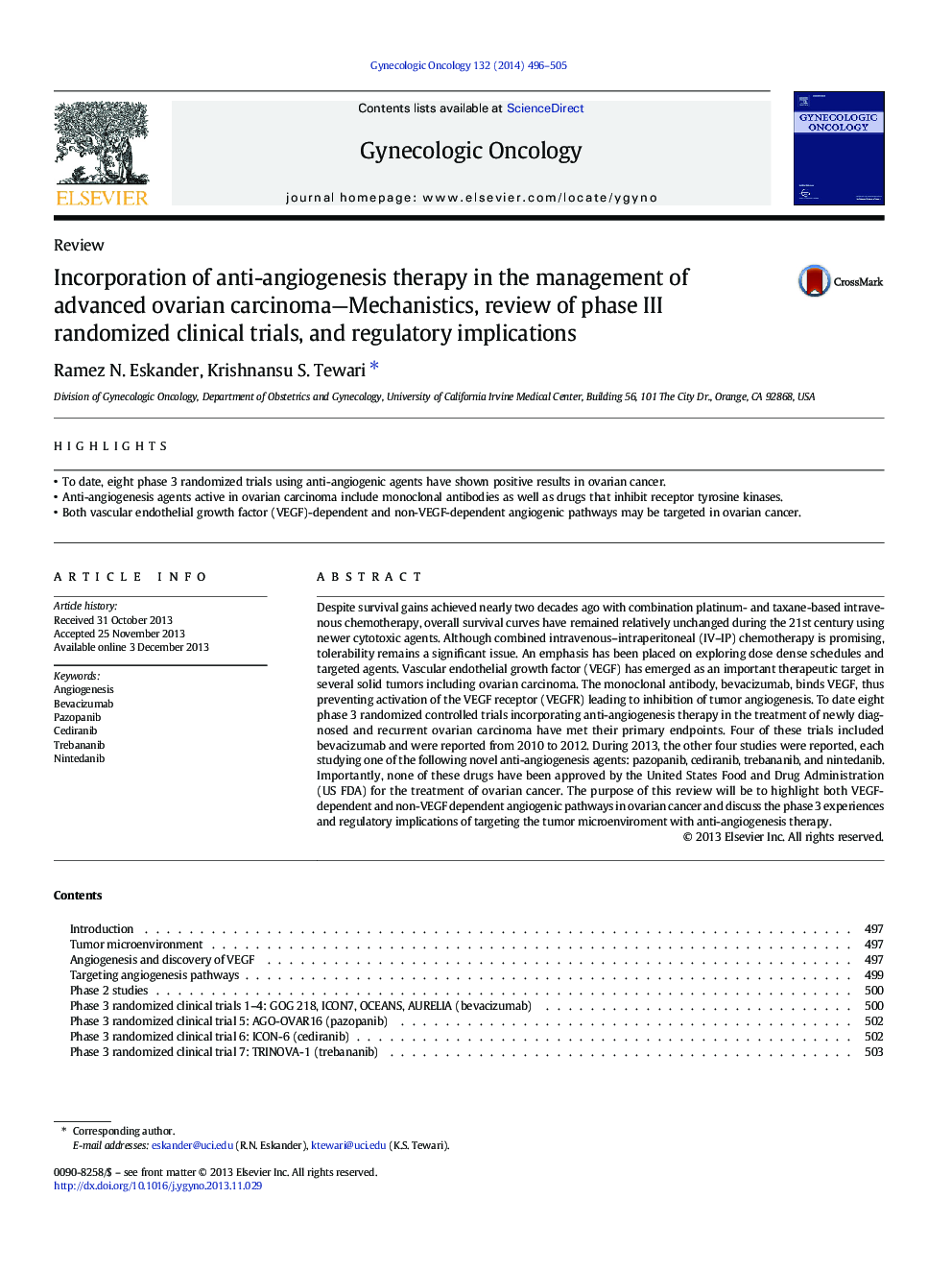| Article ID | Journal | Published Year | Pages | File Type |
|---|---|---|---|---|
| 6183616 | Gynecologic Oncology | 2014 | 10 Pages |
â¢To date, eight phase 3 randomized trials using anti-angiogenic agents have shown positive results in ovarian cancer.â¢Anti-angiogenesis agents active in ovarian carcinoma include monoclonal antibodies as well as drugs that inhibit receptor tyrosine kinases.â¢Both vascular endothelial growth factor (VEGF)-dependent and non-VEGF-dependent angiogenic pathways may be targeted in ovarian cancer.
Despite survival gains achieved nearly two decades ago with combination platinum- and taxane-based intravenous chemotherapy, overall survival curves have remained relatively unchanged during the 21st century using newer cytotoxic agents. Although combined intravenous-intraperitoneal (IV-IP) chemotherapy is promising, tolerability remains a significant issue. An emphasis has been placed on exploring dose dense schedules and targeted agents. Vascular endothelial growth factor (VEGF) has emerged as an important therapeutic target in several solid tumors including ovarian carcinoma. The monoclonal antibody, bevacizumab, binds VEGF, thus preventing activation of the VEGF receptor (VEGFR) leading to inhibition of tumor angiogenesis. To date eight phase 3 randomized controlled trials incorporating anti-angiogenesis therapy in the treatment of newly diagnosed and recurrent ovarian carcinoma have met their primary endpoints. Four of these trials included bevacizumab and were reported from 2010 to 2012. During 2013, the other four studies were reported, each studying one of the following novel anti-angiogenesis agents: pazopanib, cediranib, trebananib, and nintedanib. Importantly, none of these drugs have been approved by the United States Food and Drug Administration (US FDA) for the treatment of ovarian cancer. The purpose of this review will be to highlight both VEGF-dependent and non-VEGF dependent angiogenic pathways in ovarian cancer and discuss the phase 3 experiences and regulatory implications of targeting the tumor microenviroment with anti-angiogenesis therapy.
